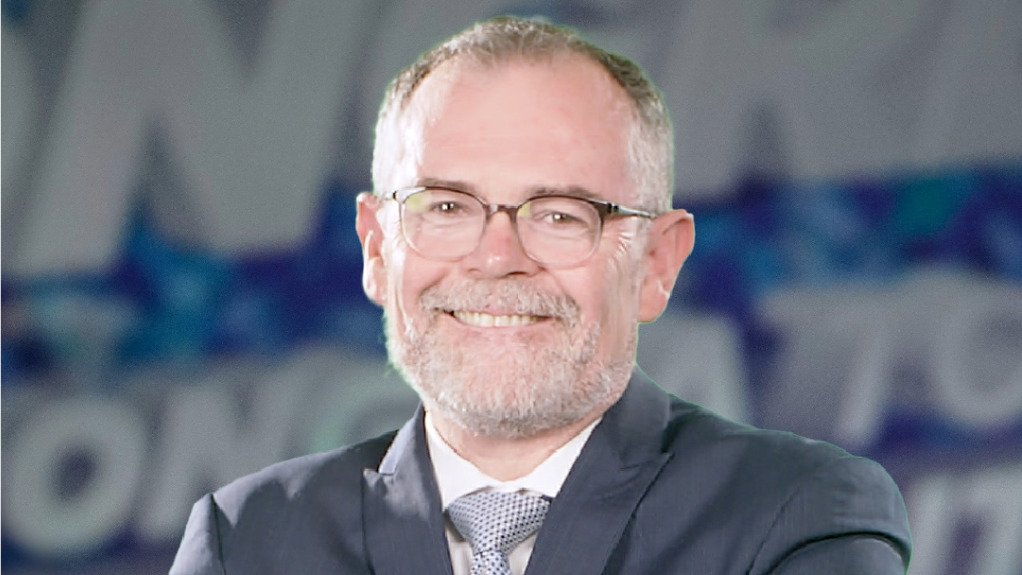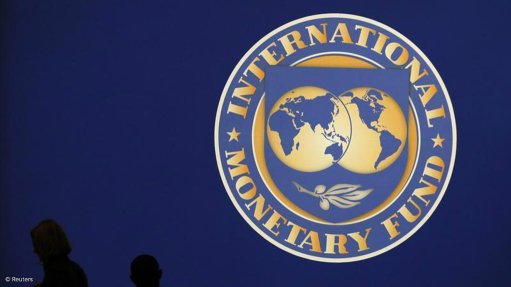DFFE, under Minister George, celebrates one year of protecting South Africa's environmental future
Forestry, Fisheries and the Environment Minister Dr Dion George says his first year in office under the Government of National Unity has laid the foundation for a greener, more inclusive and more dynamic environmental future for South Africa.
The Department of Forestry, Fisheries and the Environment (DFFE) protected endangered species, empowered coastal communities, cleaned up systems, strengthened institutions and affirmed South Africa's role on the world stage during the year, he said.
During the past year, South Africa helped to negotiate the Biodiversity Beyond National Jurisdiction Agreement, also known as the High Seas Treaty, which was the first legally binding instrument to protect biodiversity in areas beyond national borders. South Africa will ratify this treaty within the next year, he noted.
Further, at the most recent climate negotiations the Conference of the Parties (COP29), in Baku, Azerbaijan, South Africa brokered a deal balancing the need for ambitious climate action with the reality of its economic conditions, which unlocked green investment for local projects that would support its just transition.
“We are a country blessed with extraordinary biodiversity, abundant marine resources, rich forestry assets, and some of the most beautiful landscapes in the world.
“However, these are not just natural wonders to admire. They are also the foundation for job creation, tourism, food security, sustainable livelihoods, and scientific advancement,” said George.
During the past year, the DFFE has increased the number of fish species available to small-scale fishers by 36%, thereby boosting income in coastal communities.
Additionally, through expanded support for sustainable aquaculture, South Africa is seeing green technology spark new enterprises along its coasts, supporting inclusive growth.
One of the department's most significant achievements to date is the protection of the African Penguin, a critically endangered species. Following the sharp population declines and identifying the human impacts causing them, discussions were held between conservation organisations, the fishing sector and experts from the DFFE.
“This collaborative approach led to a court-ordered agreement to implement island closures around key breeding colonies. We amended the Small Pelagic fishery permit conditions to enforce these closures, ensuring sustainable fishing near vital penguin habitats.
“The changes were implemented almost immediately and reflect how negotiation and sound science can lead to outcomes that support both nature and people,” highlighted George.
Further, bunkering activities and, specifically, ship-to-ship refuelling had caused devastating oil spills and underwater noise pollution in Algoa Bay, near St Croix Island, which had once been home to the largest African Penguin colony in the world.
Following a temporary pause on bunkering activities in 2023, a small but promising recovery in the penguin population was observed.
The Minister will sign new regulations into law that place strict limits on bunkering in ecologically sensitive areas.
Additionally, the DFFE is making meaningful progress in the fight against poaching and illegal wildlife trade.
“A coordinated approach has led to successful prosecutions and a continued decline in rhino poaching incidents. We are also turning our attention to species like pangolins and abalone.
“The domestic trade of rhino horn, lion bone and lion parts is under consideration. The lives of these animals are not commodities. They are a vital part of our ecological and cultural identity,” said George.
Meanwhile, a key focus area for him during the past year has been making South Africa's systems more efficient, transparent and responsive.
The DFFE launched the Regulatory Efficiency Strategy for Environmental Turbocharge set of reforms to speed up approvals for energy and infrastructure projects while protecting the environment.
The department has also identified 11 Renewable Energy Development Zones where environmental-impact assessments are significantly simplified, reducing approval times from 300 days to 147.
For lower sensitivity areas, it introduced fast-tracked authorisations that can be processed in about 70 days.
“We also developed the National Web-Based Environmental Screening Tool, which is already helping developers identify low-impact sites for projects, streamlining planning and protecting biodiversity,” he adds.
Further, in terms of climate actions taken, the department finalised the Climate Change Response Plan for coastal adaptation, or CARP, which guides how the country support vulnerable municipalities and communities facing rising sea-levels and extreme weather conditions.
“We also secured conditional emissions exemptions for [State-owned] Eskom’s operations under the Minimum Emission Standards. These are not blanket waivers, and each exemption comes with firm conditions, including health interventions for affected communities, real-time emissions monitoring, and a firm commitment to transition to cleaner energy sources. We are holding polluters accountable,” says George.
In addition, the department is working with the Presidency and the Department of Electricity and Energy to develop a competitive power market by bringing independent power producers into the fold, with the aim to deliver both energy security and environmental sustainability.
The DFFE is also exploring international donor support for enforcement and anti-poaching, developing innovative financing mechanisms for green projects, and working with Treasury on sustainable budget models.
Simultaneously, the department is reforming key institutions. State-owned forestry company South African Forestry Company, South African National Parks and the South African Weather Service are receiving strategic attention to address governance weaknesses and boost their impact.
The department also celebrated the achievement of a clean audit at iSimangaliso Wetland Park, which was a symbol of what good governance could look like across the sector, George said.
Further, South Africa's G20 Environmental Showcase Programme leverages international attention to highlight South Africa’s conservation work. Its hosting of key G20 meetings at the Kruger National Park and Kirstenbosch botanical garden links environmental excellence with global diplomacy to elevate the country's global status and bring local benefits.
“We are also finalising the National Carbon Credits and Biodiversity Offsets Framework strategy to position South Africa in the green economy. It will allow companies to offset emissions responsibly, while directing funds into conservation and community development,” he noted.
“Since assuming the role, my responsibilities are to care for South Africa's natural heritage, to contribute to inclusive economic growth, and to ensure our country is an effective and respected player in global environmental matters,” George said.
Article Enquiry
Email Article
Save Article
Feedback
To advertise email advertising@creamermedia.co.za or click here
Announcements
What's On
Subscribe to improve your user experience...
Option 1 (equivalent of R125 a month):
Receive a weekly copy of Creamer Media's Engineering News & Mining Weekly magazine
(print copy for those in South Africa and e-magazine for those outside of South Africa)
Receive daily email newsletters
Access to full search results
Access archive of magazine back copies
Access to Projects in Progress
Access to ONE Research Report of your choice in PDF format
Option 2 (equivalent of R375 a month):
All benefits from Option 1
PLUS
Access to Creamer Media's Research Channel Africa for ALL Research Reports, in PDF format, on various industrial and mining sectors
including Electricity; Water; Energy Transition; Hydrogen; Roads, Rail and Ports; Coal; Gold; Platinum; Battery Metals; etc.
Already a subscriber?
Forgotten your password?
Receive weekly copy of Creamer Media's Engineering News & Mining Weekly magazine (print copy for those in South Africa and e-magazine for those outside of South Africa)
➕
Recieve daily email newsletters
➕
Access to full search results
➕
Access archive of magazine back copies
➕
Access to Projects in Progress
➕
Access to ONE Research Report of your choice in PDF format
RESEARCH CHANNEL AFRICA
R4500 (equivalent of R375 a month)
SUBSCRIBEAll benefits from Option 1
➕
Access to Creamer Media's Research Channel Africa for ALL Research Reports on various industrial and mining sectors, in PDF format, including on:
Electricity
➕
Water
➕
Energy Transition
➕
Hydrogen
➕
Roads, Rail and Ports
➕
Coal
➕
Gold
➕
Platinum
➕
Battery Metals
➕
etc.
Receive all benefits from Option 1 or Option 2 delivered to numerous people at your company
➕
Multiple User names and Passwords for simultaneous log-ins
➕
Intranet integration access to all in your organisation




















